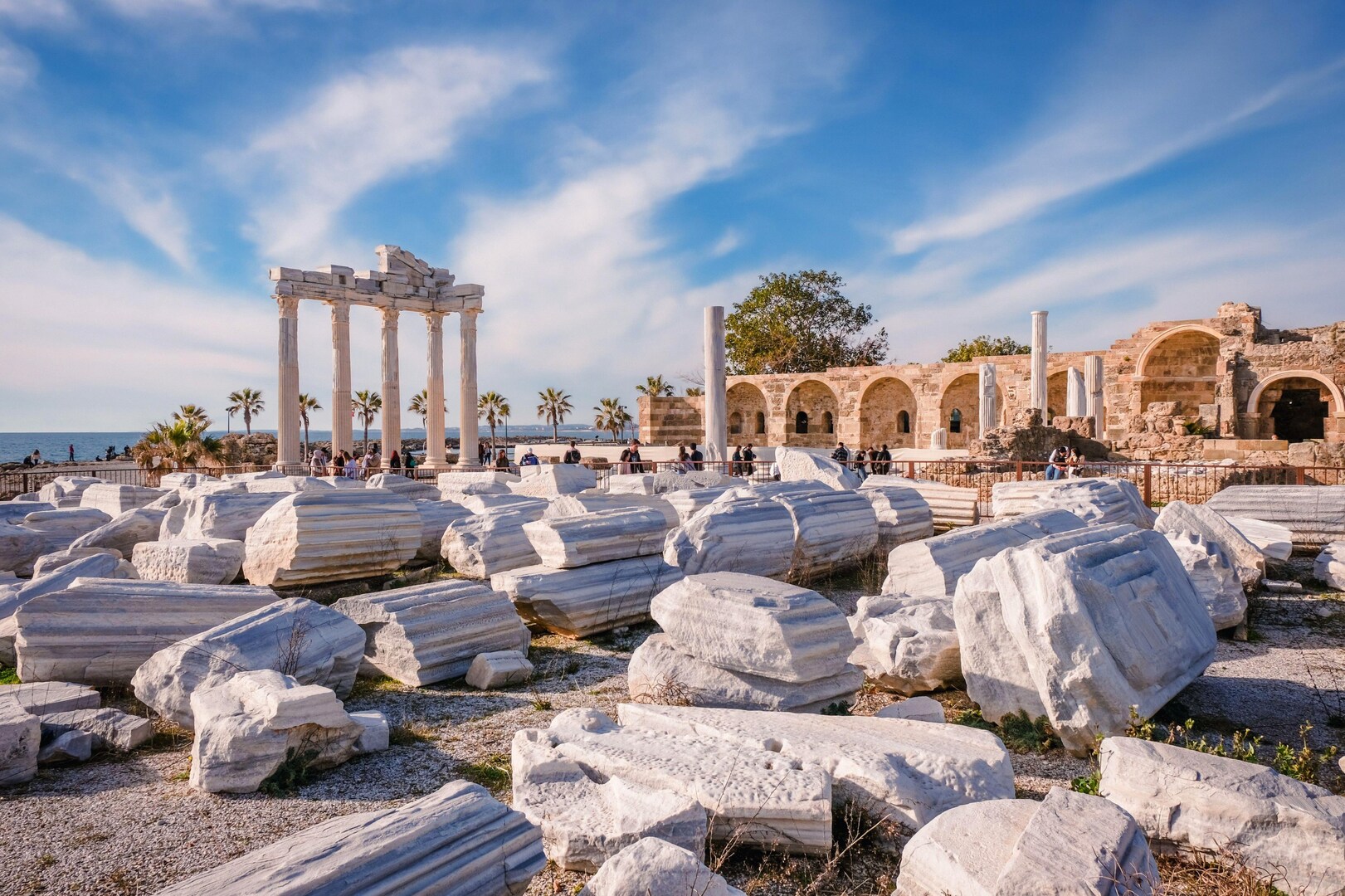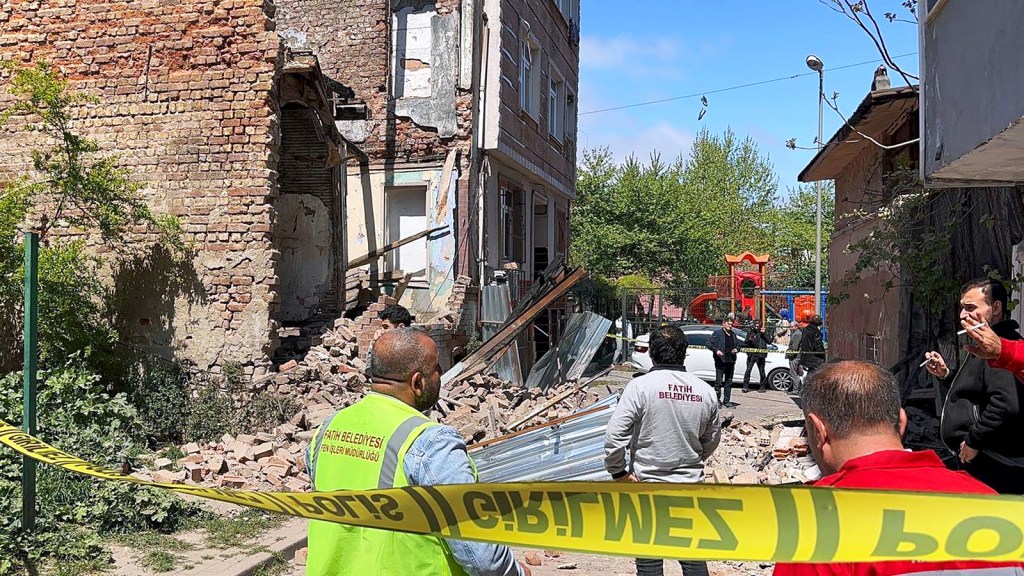Current Travel Safety in Turkey: Earthquake Impact and Guidance
Istanbul experienced a significant earthquake, registering a magnitude of 6.2, in the Sea of Marmara on April 23, marking the strongest tremor felt in the city in years. The quake’s epicenter was located approximately 50 miles west of the city, causing tremors to be felt broadly across Istanbul and other regions of Turkey. Reports indicate some structural damage and at least 236 injuries primarily due to panic-related incidents, such as individuals jumping from buildings. As of April 25, aftershocks continue to occur in the area. Below is important information, including the latest travel guidance.
The earthquake on April 23 struck at 12:49 local time (10:49 BST), with its epicenter situated off the coast of the Silivri district, around 50 miles from Istanbul.
After the initial quake, several aftershocks were recorded in the Silivri coast and in Istanbul, alongside other parts of Turkey. The health minister, Kemal Memisoglu, reported that 236 individuals were affected due to panic attacks and injuries resulting from falls or jumping.
In the days following, minor tremors persist in the region, with the most substantial aftershock recorded on the morning of April 25, measuring 3.6 according to the Interior Disaster and Emergency Management Authority.
Which Locations Experienced Impact?
The strongest tremor of 6.2 magnitude hit the Sea of Marmara near Silivri, affecting not only Istanbul but also nearby provinces including Tekirdag, Yalova, Bursa, Balikesir, and extending as far south as Izmir, approximately 340 miles away. The country’s Interior Minister, Ali Yerlikaya, noted that the earthquake lasted around 13 seconds and was succeeded by over 50 aftershocks, the most powerful of which reached a magnitude of 5.9.
Is Istanbul Safe for Travelers?
Despite ongoing minor quakes in Istanbul, the current travel advisory does not discourage visits to the city, indicating it is deemed safe for travelers. If you have plans to travel shortly, it is wise to consult with your tour operator or accommodation provider. Should you choose to cancel your trip, this may be classified as a voluntary cancellation, which generally does not entitle you to a refund and could limit your ability to claim losses from your travel insurance.
Are There Safety Concerns for Traveling to Turkey?
No travel restrictions against visiting Turkey have been issued in relation to the earthquake at this time. However, the Foreign Office updated travel guidance on April 23, emphasizing that many regions of Turkey experience earthquakes regularly, which can be of high magnitude, potentially resulting in infrastructure damage and risks to personal safety.
A 6.2 magnitude earthquake was reported in the Sea of Marmara on April 23, 2025. For further updates, refer to the earthquake information provided by Turkey’s Disaster and Emergency Management Authority (AFAD).
Stay informed: It is crucial to heed advice from local authorities, tour operators, and accommodation providers, as well as follow guidance from the US Federal Emergency Management Agency regarding precautions before, during, and after an earthquake.
Impact of Middle East Conflict on Turkey

Turkey has not been directly affected by the recent conflicts in the Middle East. However, diplomatic relations with Israel have significantly soured, leading to a complete halt in trade between the two nations. Protests have erupted outside diplomatic missions in major cities like Istanbul and Ankara, prompting advisories for visitors to avoid any demonstrations and to vacate areas if protests emerge.
In light of Israel’s military activities, the Foreign Office has reiterated the potential for escalating tensions that could affect the broader region. This advisory has not been amended since a ceasefire was declared between Israel and Hezbollah or since other recent agreements involving Hamas.
Turkey’s President Erdogan has publicly called for restraint from all parties involved in the Israel-Hamas conflict and stated Turkey’s commitment to de-escalating violence. Recent statements have highlighted Turkey’s condemnation of conflicts impacting Lebanon amidst rising tensions with Israel.
General Travel Safety in Turkey
While many regions in Turkey remain safe and welcoming to tourists, the Foreign Office advises against travel within 10 kilometers of the Syrian border.
Travelers planning to visit areas near the borders with Iraq and Iran in Hakkari province must secure permission from local governance. Tourists traveling with organized groups should confirm whether individual permits are necessary.
Mount Ararat is classified as a special military zone, requiring government permission for access, along with an associated fee.
Notably, the Foreign Office has underscored the heightened threat of terrorism across Turkey, with political protests increasingly becoming volatile. Travelers should remain vigilant and observant of the latest safety advisories from the Foreign Office and local authorities.
Historically, most terrorist incidents have occurred in southeastern Turkey, Ankara, and Istanbul, with the potential for targeting locations frequented by foreign visitors, including public spaces and places of worship.
Travel Advisory from the Foreign Office
The Foreign Office continues to recommend avoiding travel within 10 kilometers of the Syrian border. For other parts of the country, vigilance is advised.
Increased tensions arising from the Israel-Hamas conflict have led to protests in various cities within Turkey. Individuals should steer clear of all demonstrations and be prepared to leave the vicinity should any event arise, as local transportation may also be disrupted. Despite a ceasefire, the advisory remains pertinent.
Crime rates are generally low in Turkey, but the incidence of theft, particularly pickpocketing in crowded tourist areas, is common.
Travelers are cautioned against accepting food and drink from strangers to prevent any risks of spiking, and should be wary if offered assistance in finding entertainment or exchanging currency.

Issues with counterfeit alcohol have surfaced in both Ankara and Istanbul, leading visitors to purchase alcohol exclusively from licensed venues. Homemade alcoholic beverages should be avoided, and travelers should verify that bottle seals are intact and watch for low-quality labels.
Reports of sexual assault, particularly during peak summer months in coastal areas, are noted, often involving individuals whom the victim met earlier in the day.
Most terrorism-related incidents in Turkey have transpired in southeastern regions, Ankara, and Istanbul, with potential targets including venues frequented by foreigners and public events. The last reported attack occurred in October 2024, resulting in fatalities.
Entry Requirements for Turkey
British nationals can visit Turkey for up to 90 days without a visa within a 180-day timeframe. Extended stays require a visa or residence permit.
Entry regulations mandate that passports maintain a minimum validity of 150 days from the date of arrival, coupled with having at least one full blank page for official stamps.
Travel Guidance for Neighboring Regions
Stay informed about the travel circumstances surrounding neighboring countries, as regional dynamics can change swiftly and may impact travel decisions.




Post Comment